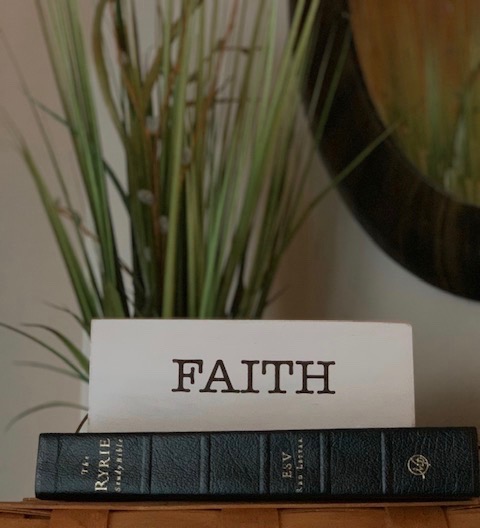The Word of God encourages biblical faith and commends those who have it, but if we don’t know what it is we can’t grow in it. Incorrect beliefs regarding biblical faith abound, so first consider what it is not. It is not wishful thinking: “If I wish hard enough or believe strongly enough that something will happen, it will. And I’ll cross my fingers to help.” It is not blind adherence to a human: “This man says that God speaks directly to him, so whatever this man says is going to happen, will; and whatever this man says I should do, I must do.” It is not making demands of God and promising to others that God will perform a particular act simply because we have “faith” that he will: “I have prayed that God would remove your problem, so I’m certain he will,” or, “I have told God that he needs to provide a specific amount of money for me to give to this cause, so I know he will.” If the event never happens or the problem doesn’t go away or the money doesn’t come, we worry that we didn’t have enough faith.
These are examples of faith, but not the faith encouraged in the Word of God. We’ll probably touch on faith every once in a while in this blog because it’s a recurring biblical theme, but in today’s reflection we’ll look at 3 situations early in 2 Kings and consider how God used the prophet Elisha to teach these individuals, and us, about biblical faith.
In 2 Kings 3, 3 kings headed to battle against Moab. After 7 days of marching they were so parched they were afraid they’d never reach the battle. How could they defeat an enemy when they were dying of thirst? They asked Elisha for God’s help, probably hoping for a powerful rain and a great display of strength in battle. If we were those kings, that’s what we would have wanted to see. Elisha didn’t predict a great storm, however; he simply told them that they would be able to drink from the streambed the next day. He also communicated to them God’s instructions for attacking and destroying the Moabites and advised to sit back and leave their situation in God’s hands. The next morning, precious water arrived from the direction of Edom, gradually filling the ditches with no thunder or fanfare. It not only saved their lives by providing hydration but also silently caused the Moabites to make a strategic mistake. The kings of Judah, Israel, and Edom, by obeying Elisha’s specific instructions, defeated the Moabites handily.
In chapter 4 the creditors were at the widow’s door, and she had nothing to give them. She expressed her reverence for God and asked the prophet Elisha what she should do. He instructed her to borrow and gather from all her neighbors as many empty containers as she could find and begin filling them from her one remaining jar of oil. She ended up with enough oil to sell that she paid all her debts and had money left over.
We read about Naaman the leper in chapter 5. Elisha’s advice to this Syrian commander seemed ridiculous: dip in the dirty Jordan River 7 times. Naaman’s initial response was disdain and anger, as though he were too great to be treated so disgracefully. Eventually he dipped himself 7 times in the Jordan River, however, and was cured of his leprosy.
In each of these situations, the advice didn’t follow the rules of common sense. Those wanting God’s help first had to seek his will. They then had to focus their faith on the truth of God’s Word and have faith that God is God, that he knows best, that he sees and knows much more than men’s finite minds ever could, and that their place was simply to follow his instructions. The three armies waited for God’s quiet deliverance and then obeyed his specific instructions. The widow proved her reverence for God by having enough faith to gather many, many containers; a weak faith (for example, “This doesn’t make sense so I’m not going to bother gathering many”) would have given her a much smaller blessing. Naaman eventually had enough faith to swallow his pride and take the plunge, all 7 times.
Elisha isn’t knocking on our doors with instructions for the day, but we have the completed Word of God, something these kings and the widow and Naaman didn’t have. There’s enough instruction to give us God’s will for any situation we find ourselves in. The problem is that too often we lack the biblical faith to act as these examples in 2 Kings, a faith that primarily seeks God’s instruction rather than our desires. We must take the time to learn to know God and his Word. We must be careful to interpret his Word correctly, and we must pray for wisdom. Then we must have faith that God is God, that he knows best, that he knows more than we do, and that our place is simply to submit to his instructions.
Consider whether there’s any area of your life for which God’s Word has taken second place to “common sense.” Are there instructions you know God has given us which don’t seem to fit your plans, so you ignore them? Pray for God’s strength to have the kind of faith that obeys even when you think God’s will doesn’t seem practical or won’t accomplish what you think it should. Grow your biblical faith by studying and applying his Word, and be thrilled anew at the greatness of a God who is so worthy of our faith.

